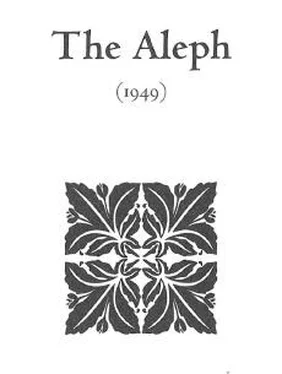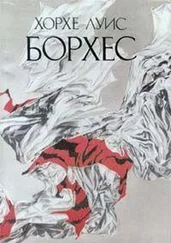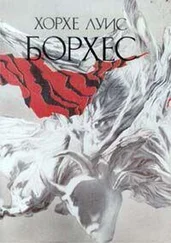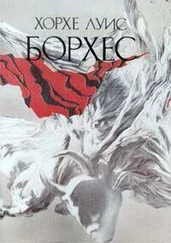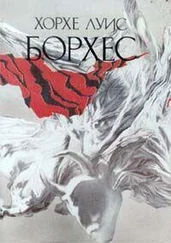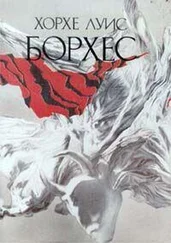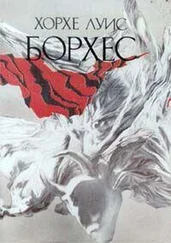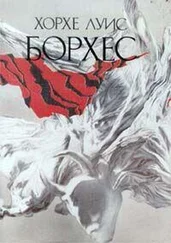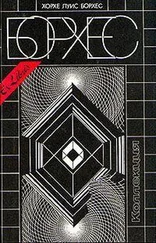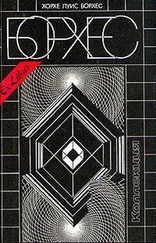Хорхе Борхес - Collected Fictions
Здесь есть возможность читать онлайн «Хорхе Борхес - Collected Fictions» весь текст электронной книги совершенно бесплатно (целиком полную версию без сокращений). В некоторых случаях можно слушать аудио, скачать через торрент в формате fb2 и присутствует краткое содержание. Год выпуска: 1999, ISBN: 1999, Издательство: Penguin (UK), Жанр: Старинная литература, на английском языке. Описание произведения, (предисловие) а так же отзывы посетителей доступны на портале библиотеки ЛибКат.
- Название:Collected Fictions
- Автор:
- Издательство:Penguin (UK)
- Жанр:
- Год:1999
- ISBN:9780140286809
- Рейтинг книги:5 / 5. Голосов: 1
-
Избранное:Добавить в избранное
- Отзывы:
-
Ваша оценка:
- 100
- 1
- 2
- 3
- 4
- 5
Collected Fictions: краткое содержание, описание и аннотация
Предлагаем к чтению аннотацию, описание, краткое содержание или предисловие (зависит от того, что написал сам автор книги «Collected Fictions»). Если вы не нашли необходимую информацию о книге — напишите в комментариях, мы постараемся отыскать её.
Collected Fictions — читать онлайн бесплатно полную книгу (весь текст) целиком
Ниже представлен текст книги, разбитый по страницам. Система сохранения места последней прочитанной страницы, позволяет с удобством читать онлайн бесплатно книгу «Collected Fictions», без необходимости каждый раз заново искать на чём Вы остановились. Поставьте закладку, и сможете в любой момент перейти на страницу, на которой закончили чтение.
Интервал:
Закладка:
Schopenhauer, de Quincey, Stevenson, Mauthner, Shaw, Chesterton, León Bloy—this is the heterogeneous list of the writers I am continually rereading. In the Christological fantasy titled "Three Versions of Judas," I think I can perceive the remote influence of the last of these.
J. L. B.
Buenos Aires, August 29, 1944/1956
Funes, His Memory*
I recall him (though I have no right to speak that sacred verb—only one man on earth did, and that man is dead) holding a dark passionflower in his hand, seeing it as it had never been seen, even had it been stared at from the first light of dawn till the last light of evening for an entire lifetime. I recall him—his taciturn face, its Indian features, its extraordinary remoteness —behind the cigarette. I recall (I think) the slender, leather-braider's fingers. I recall near those hands a mate cup, with the coat of arms of the Banda Oriental.* I recall, in the window of his house, a yellow straw blind with some vague painted lake scene. I clearly recall his voice—the slow, resentful, nasal voice of the toughs of those days, without the Italian sibilants one hears today. I saw him no more than three times, the last time in 1887.... I applaud the idea that all of us who had dealings with the man should write something about him; my testimony will perhaps be the briefest (and certainly the slightest) account in the volume that you are to publish, but it can hardly be the least impartial. Unfortunately I am Argentine, and so congenitally unable to produce the dithyramb that is the obligatory genre in Uruguay, especially when the subject is an Uruguayan. Highbrow, dandy, city slicker — Funes did not utter those insulting words, but I know with reasonable certainty that to him I represented those misfortunes. Pedro Leandro Ipuche* has written that Funes was a precursor of the race of supermen—"a maverick and vernacular Zarathustra"—and I will not argue the point, but one must not forget that he was also a street tough from Fray Bentos, with certain incorrigible limitations.
My first recollection of Funes is quite clear. I see him one afternoon in March or February of '84. That year, my father had taken me to spend the summer in Fray Bentos.*I was coming back from the ranch in San Francisco with my cousin Bernardo Haedo. We were riding along on our horses, singing merrily—and being on horseback was not the only reason for my cheerfulness. After a sultry day, a huge slate-colored storm, fanned by the south wind, had curtained the sky. The wind flailed the trees wildly, and I was filled with the fear (the hope) that we would be surprised in the open countryside by the elemental water. We ran a kind of race against the storm. We turned into the deep bed of a narrow street that ran between two brick sidewalks built high up off the ground. It had suddenly got dark; I heard quick, almost secret footsteps above me—I raised my eyes and saw a boy running along the narrow, broken sidewalk high above, as though running along the top of a narrow, broken wall. I recall the short, baggy trousers— like a gaucho's—that he wore, the straw-soled cotton slippers, the cigarette in the hard visage, all stark against the now limitless storm cloud. Unexpectedly, Bernardo shouted out to him— What's the time, Ireneo? Without consulting the sky, without a second's pause, the boy replied, Four minutes till eight, young Bernardo Juan Francisco. The voice was shrill and mocking.
I am so absentminded that I would never have given a second thought to the exchange I've just reported had my attention not been called to it by my cousin, who was prompted by a certain local pride and the desire to seem unfazed by the other boy's trinomial response.
He told me that the boy in the narrow street was one Ireneo Funes, and that he was known for certain eccentricities, among them shying away from people and always knowing what time it was, like a clock. He added that Ireneo was the son of a village ironing woman, Maria Clementina Funes, and that while some people said his father was a doctor in the salting house (an Englishman named O'Connor), others said he broke horses or drove oxcarts for a living over in the department of Salto. The boy lived with his mother, my cousin told me, around the corner from Villa Los Laureles.
In '85 and '86, we spent the summer in Montevideo; it was not until '87 that I returned to FrayBentos. Naturally, I asked about everybody I knew, and finally about "chronometric Funes."I was told he'd been bucked off a half-broken horse on the ranch in San Francisco and had been left hopelessly crippled. I recall the sensation of unsettling magic that this news gave me: The only time I'd seen him, we'd been coming home on horseback from the ranch in San Francisco, and he had been walking along a high place. This new event, told by my cousin Bernardo, struck me as very much like a dream confected out of elements of the past. I was told that Funes never stirred from his cot, his eyes fixed on the fig tree behind the house or on a spider web. At dusk, he would let himself be carried to the window. He was such a proud young man that he pretended that his disastrous fall had actually been fortunate.... Twice I saw him, on his cot behind the iron-barred window that crudely underscored his prisonerlike state—once lying motionless, with his eyes closed; the second time motionless as well, absorbed in the contemplation of a fragrant switch of artemisia.
It was not without some self-importance that about that same time I had embarked upon a systematic study of Latin. In my suitcase I had brought with me Lhomond's De virisillustribus, Quicherat's Thesaurus, Julius Caesar's commentaries, and an odd-numbered volume of Pliny's Naturalis historia —a work which exceeded (and still exceeds) my modest abilities as a Latinist. There are no secrets in a small town; Ireneo, in his house on the outskirts of the town, soon learned of the arrival of those outlandish books. He sent me a flowery, sententious letter, reminding me of our "lamentably ephemeral" meeting "on the seventh of February, 1884." He dwelt briefly, elegiacally, on the "glorious services" that my uncle, Gregorio Haedo, who had died that same year, "had rendered to his two motherlands in the valiant Battle of Ituzaingo," and then he begged that I lend him one of the books I had brought, along with a dictionary "for a full understanding of the text, since I must plead ignorance of Latin." He promised to return the books to me in good condition, and "straightway." The penmanship was perfect, the letters exceptionally well formed; the spelling was that recommended by Andrés Bello: i for y, j for g. At first, of course, I thought it was some sort of joke. My cousins assured me it was not, that this "was just... just Ireneo." I didn't know whether to attribute to brazen conceit, ignorance, or stupidity the idea that hard-won Latin needed no more teaching than a dictionary could give; in order to fully disabuse Funes, I sent him Quicherat's Gradus ad Parnassum and the Pliny.
On February 14,1 received a telegram from Buenos Aires urging me to return home immediately; my father was "not at all well." God forgive me, but the prestige of being the recipient of an urgent telegram, the desire to communicate to all of Fray Bentos the contradiction between the negative form of the news and the absoluteness of the adverbial phrase, the temptation to dramatize my grief by feigning a virile stoicism—all this perhaps distracted me from any possibility of real pain. As I packed my bag, I realized that I didn't have the Gradus ad Parnassum and the first volume of Pliny. The Saturn was to sail the next morning; that evening, after dinner, I walked over to Funes' house. I was amazed that the evening was no less oppressive than the day had been.
Читать дальшеИнтервал:
Закладка:
Похожие книги на «Collected Fictions»
Представляем Вашему вниманию похожие книги на «Collected Fictions» списком для выбора. Мы отобрали схожую по названию и смыслу литературу в надежде предоставить читателям больше вариантов отыскать новые, интересные, ещё непрочитанные произведения.
Обсуждение, отзывы о книге «Collected Fictions» и просто собственные мнения читателей. Оставьте ваши комментарии, напишите, что Вы думаете о произведении, его смысле или главных героях. Укажите что конкретно понравилось, а что нет, и почему Вы так считаете.
